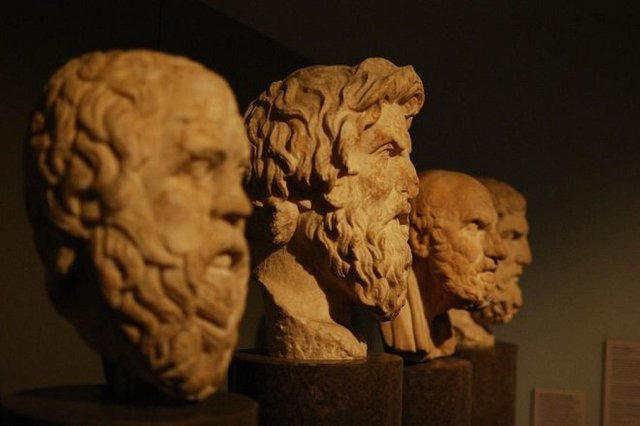Ancient philosophy. Life and creativity of Socrates. /last part/
By comparing all sources, as well as the unanimous testimonies of Socrates students, it is clear that the philosopher himself and his disciples believed in "something divine" in a real voice heard by Socrates. He sees in it a providential revelation of the Higher Power, and seeks, in the words of St. Justin Philosopher, to make people look for the Invisible God Who is revealed through the Logos. Socrates, according to this holy father, had some degree of knowledge about this Logos, for the Son of God is a personal phenomenon of the Logos living in every person.
At the same time, Socrates' entire teaching is permeated by the belief in immortality.There is a lot of evidence for this in some of Xenophon works, but the most vivid and deeply ardent belief, the idea of the immortality of the human soul is developed and protected in the Fedon Dialogue. In this respect, Socrates's first argument is the interplay of opposites. He asks: "If all that was part of living dies, and after he died he remained forever in this form and did not come alive again, the need for everything to be dead in the end and nothing to remain in life? For if life is born of something else and dies, is it possible to prevent it from exhausting death? - Absolutely impossible, Kebet said... Yes, Socrates said, it seems to me that it is precisely that and that we are not deceived by assuming that these things are so: there really is a livelihood, and from the dead are born the living and the souls of the dead - and this existence is better for good souls and for worse worse "
The second argument comes down to the following: if the soul existed before, and if it is necessary to give birth to life and birth, not from elsewhere, but from death and from what is dead is it not necessary if it is necessary to be born again to continue to exist after she dies? As I said, it turns out to be proved ". The third argument is that the soul is identical to itself and is indestructible. "The soul resembles the divine, but the body of death". The fourth argument for the immortality of the soul is that it is an idea of life and something fundamentally opposite to death. "Assuming that immortality is also indestructible, then the soul except that it is immortal will also be indestructible ... I suppose at least for God, Socrates said, for the very idea of life and for all other immortal things, all will agree, that they never perish ".
The very personality of Socrates, much more than any writings filled with spiritual life, also testifies to immortality. His image, his ideas of the highest grace, and the inner divine voice in man are not dead, but have become a moral force for mankind, for all who have realized the undying power of the human spirit. Socrates stands before us as one of those great plastic natures, carved entirely from a stone, as we are used to seeing them at that time - as a perfectly classical artistic work that has only risen to this height. Such persons have not been created, but have been built independently of what they have been; they have become what they have wanted to be, and have been faithful to them for the rest of their lives ". It is hard to find a more accurate characterization of this great thinker, for whom his most faithful disciple Plato writes: "We can say that he was the best, and the cleverest and the most just among those we knew of that time.
--

Wonderful Content!
Thank you :)